The incredible shrinking podcast industry
Length: • 17 mins
Annotated by 🕋 John Philpin
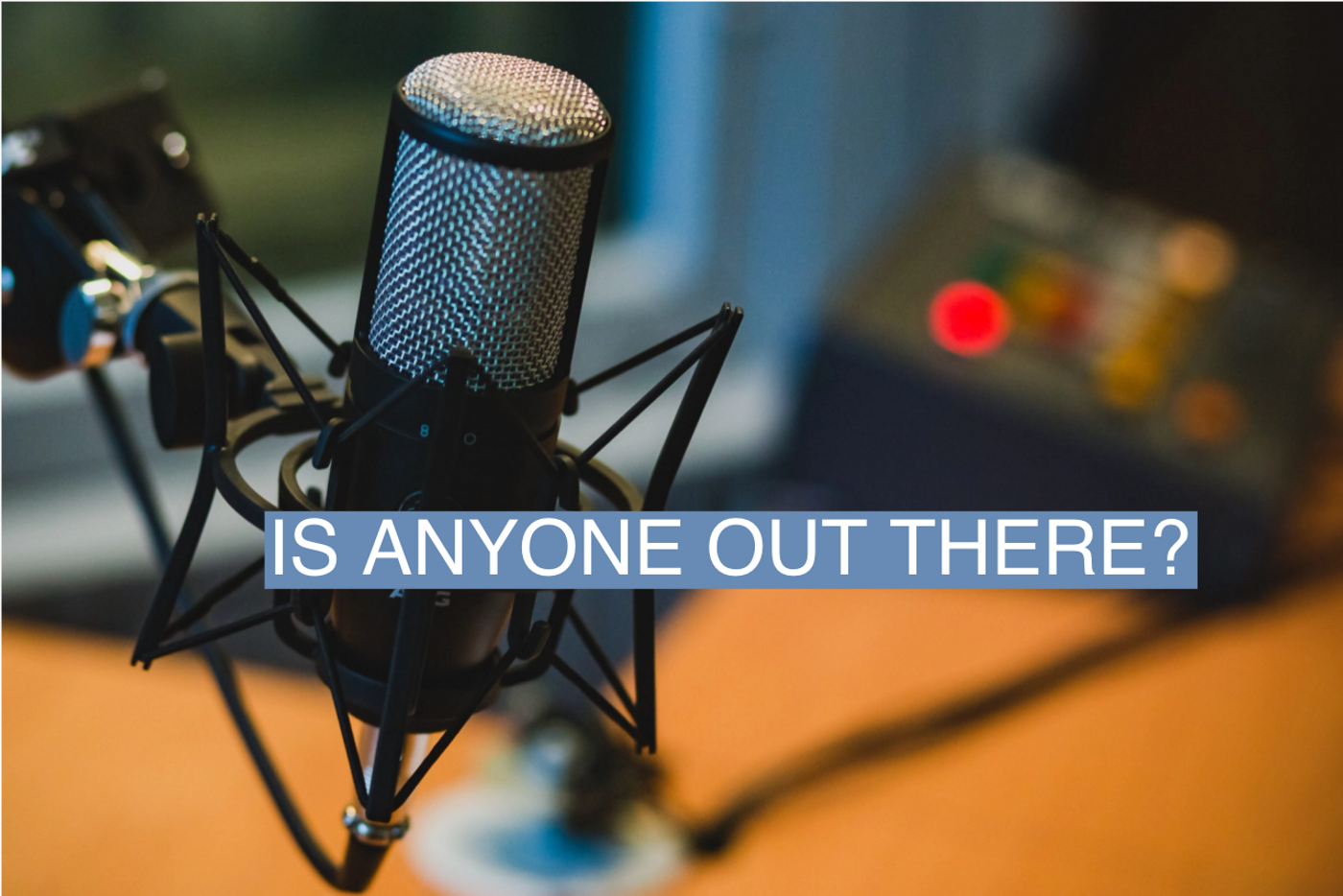
Apple has quietly tightened its reporting of how many people listen to podcasts, sending shock waves through an embattled audio industry still reeling from the end of the COVID-era production bubble.
The shift, Apple wrote in a blog post, was technical: The dominant podcasting platform had begun switching off automatic downloads for users who haven’t listened to five episodes of a show in the last two weeks.
But while few users noticed the shift, some of the biggest podcasts in the world saw their official listener numbers drop dramatically. Long-running shows that publish frequently were hit particularly hard. A user who listened to a show like The New York Times’ The Daily a few times, subscribed, but stopped listening would continue to count as a download indefinitely. Even better under the old rules: For people who listened to a show, dropped off for a while, but started listening again later, Apple would automatically download every show in between. The arrangement drove big download numbers, a crucial metric for ad sales and a sign of the vast reach of podcasts as a medium.
For instance, The Daily and Dateline both publicly touted reaching over a billion total downloads. But representatives for these shows would not say if those numbers or other impressive daily or weekly download stats are still accurate, though several of the biggest podcasts acknowledged privately to Semafor that they had seen noticeable declines, and were still trying to determine the actual size of their audience following the change.
The shift came with no immediate warning. People who work on audio at The New York Times, NPR, and other major publishers told Semafor they were surprised by the September change, which had been years in the making but came with no advanced warning from Apple. One podcast network told Semafor it had seen its downloads drop between single digits and low double digits depending on the show. Another well-known podcaster and executive said for some shows, the decline in downloads was as high as 40%.
“Nearly every podcast that regularly publishes got an enormous haircut,” one podcast industry insider said.
Podcasters are keeping quiet on the falling audience metrics. None of the publishers of Apple’s top ten podcasts last year would comment on the change. Apple has promoted the move as the natural evolution of its podcast product. The tech giant says it is better for users and for advertisers, who have a more realistic picture of what podcast audiences actually are. Industry groups agree: Sounds Profitable, a podcast monetization trade group, lobbied Apple to make the change, and said that it would lead to more accurate audience info and more effective advertising.
“We look forward to collaborating with advertisers to understand and adapt to these changes and we anticipate these adjustments will lead to improved campaign performance,” the group said in a statement. “We also ask publishers for patience as they navigate these modifications. Any reduction of inventory, especially entering the fourth quarter, requires a strategic approach to sustain success.”
One early loser, however, seems to be the nascent subscription podcast business. Apple has privately acknowledged to some podcasters that it had accidentally included unlistened bonus episodes and segments in its automatic download count, meaning that shows that used Apple Podcast Subscriptions were actually increasing the likelihood that automatic downloads would stop for listeners who missed a few episodes.
Even podcast executives believe the changes are part of a necessary shakeout in an industry whose bubbly inflation helped create the industry’s recent boom and bust.
But privately, reactions to the change have ranged from mild annoyance to legitimate alarm. Some advertising deals were inked under the assumption that shows had audiences they no longer have. The update also means that some shows could struggle to meet minimum download agreements. The fact that no major podcasts would talk about how much they lost is a sign that many big shows aren’t ready to admit how much their audiences have shrunk.
It’s also another demonstration of the power that tech platforms continue to wield over media, a faint echo of the inflated Facebook video metrics that sent advertisers and publishers alike down a garden path a few years ago. Spotify’s pullback from podcasting resulted in hundreds of layoffs last year. A small tweak with little warning from Apple sent even the biggest podcasts into a frenzy, wondering what will happen to audiences, how it could impact revenue and talent deals.
At least one of the big players is trying to avoid this. Though Apple is a partner for the Times, the publication also launched its own standalone audio app last year to create a direct connection with fans and in part to better insulate themselves from changes made by the platforms.
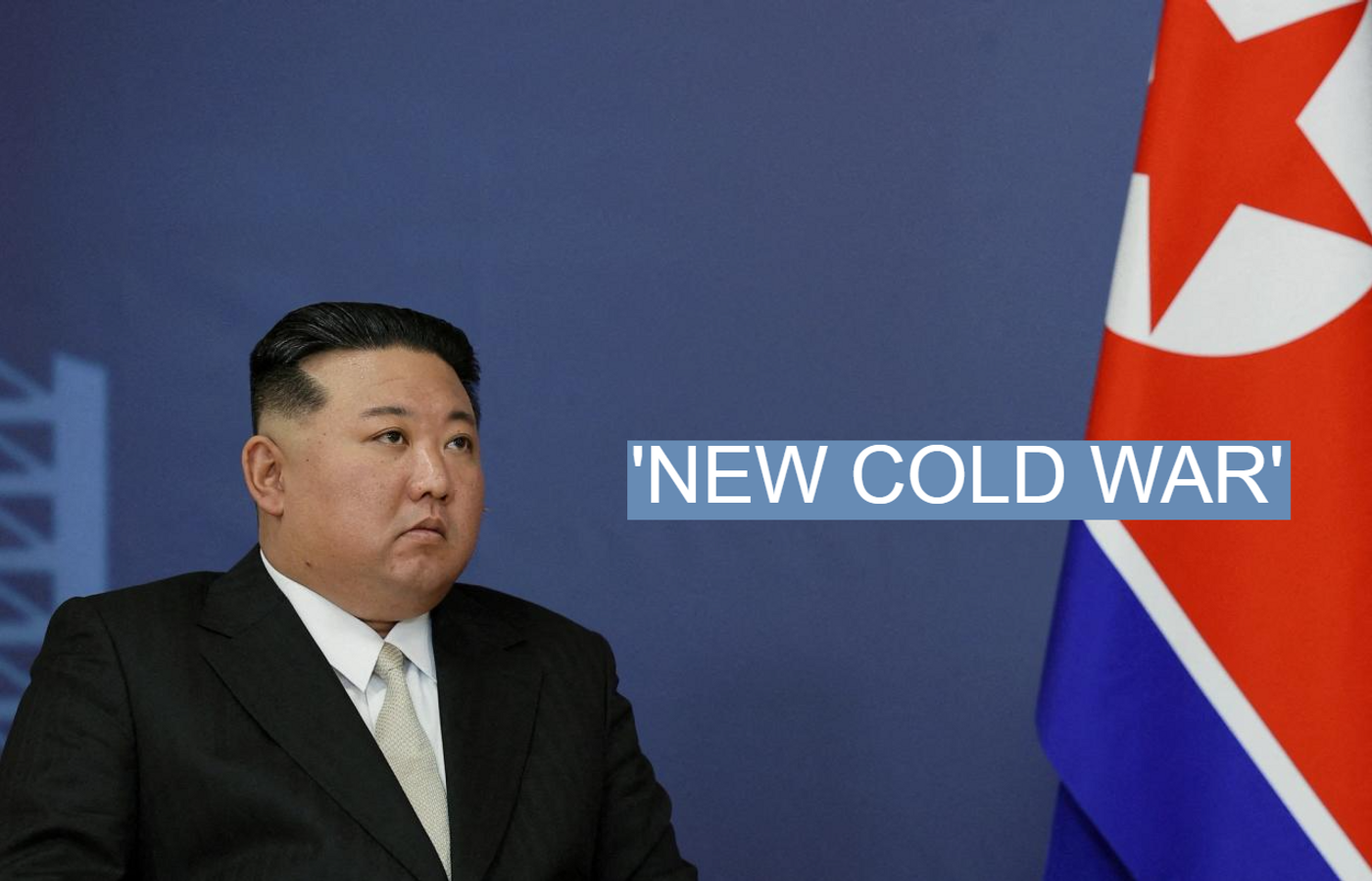
All eyes are on the Korean peninsula as tensions flare to new heights between the North and South.
Pyongyang this week tested its first solid-fuel hypersonic missile, designed to travel five times the speed of sound and evade missile defense systems, after months of launching new technology including a spy satellite. On Tuesday, the country shut down its reunification agencies, a sign that leader Kim Jong Un is no longer interested in pursuing peaceful dialogue with Seoul.
Conflict between the North and South may prove to be a key security issue in 2024, with elections taking place in both South Korea and the United States.
Semafor Signals: Global insights on today's biggest stories.
Kim Jong Un may be preparing for war, some analysts believe
The tense situation in the Korean peninsula is “more dangerous than it has been” since the 1950s, according to North Korea news site 38 North, with two analysts warning that Kim “has made a strategic decision to go to war.” It remains unclear when Kim plans to “pull the trigger,” but developments in the North go “far beyond the routine warnings in Washington,” the authors opined. Contrary to what many U.S. foreign policy hawks believe, the Kim regime has spent decades trying to normalize relations with Washington as a buffer against Russia and China. Kim Jong Un aimed to achieve this at the 2018 Hanoi summit with former President Donald Trump, but its failure was a “traumatic loss” for Kim. Given Kim’s possible conviction that after decades of futile attempts, there is no way to engage the U.S., he could be planning to move in a surprise attack, the experts argued. Clinging to the belief that Kim could be deterred by the threat of Washington and Seoul’s counterattack “may be fatal.”
In his New Year’s address, South Korean President Yoon Suk Yeol said he hopes to build “peace through strength” on the peninsula, doubling down on a commitment to increase military deterrence against the North. But Yoon’s critics argue that his aggressive rhetoric has only fueled tensions to dangerous new levels. A spokesperson for the opposition Democratic Party told KTN that by boasting about Seoul’s military capabilities while refusing to hold meetings with North Korean officials, Yoon has started “a new Cold War” on the peninsula. Experts agree that Yoon’s hawkish position on the North is because of his overconfidence in protection from the U.S., according to South Korea’s The Hankyoreh newspaper, but “it is reckless to be 100% confident that the U.S. government will open a nuclear umbrella for South Korea at the expense of American lives,” one analyst said.
‘Unpredictable’ Trump presidency unlikely to quell North-South tensions
Former President Donald Trump values “political flexibility” and “immediate tactical political advantages,” but these characteristics — coupled with an entirely new geopolitical situation — means he is unlikely to mitigate a Korean crisis if elected this year, according to the Council on Foreign Relations. North Korea is now much more closely aligned with Russia as it supports its war in Ukraine, and Yoon is unlikely to cheer on any U.S. efforts to improve relations with Pyongyang. Korean strategists are also worried about Trump’s unpredictable decision-making strategies. While Trump has now proposed allowing North Korea to keep some of its nuclear weapons in exchange for economic remedies, a new book claims that Trump apparently proposed nuking North Korea in the wake of the Hanoi summit. “Trump’s unpredictable leadership would dramatically transform the inter-Korean security dynamic,” the Council argued, with major global security implications.
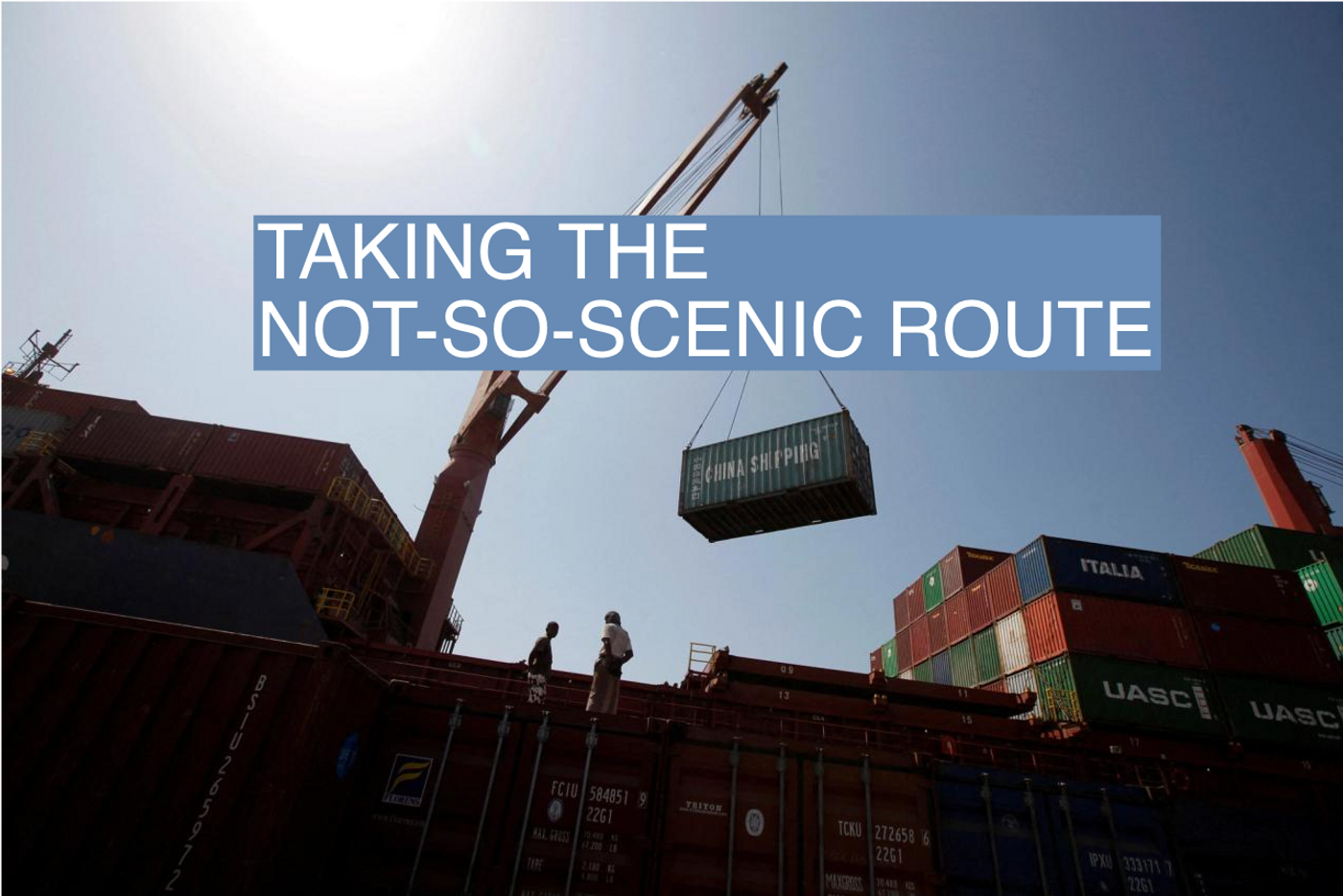
Rising tensions in the Red Sea caused a number of large oil companies to avoid passing their tankers through the corridor, raising prices and increasing the risk of larger economic ramifications from the Israel-Hamas war.
Continued attacks from the Yemen-based Houthi militant group on ships traversing the corridor led the U.S. and U.K. to strike Houthi targets last week. The Iran-backed Houthis have since threatened to ratchet up their attacks on the Red Sea.
Over a dozen oil tankers have steered clear of the route, instead taking the longer path around Africa’s Cape of Good Hope, according to a Reuters tally. Oil giant Shell also suspended shipping on the route, The Wall Street Journal reported, while shipments of Qatari liquefied natural gas were paused for several days before resuming Tuesday.
Semafor Signals: Global insights on today's biggest stories.
Rerouting oil tankers has led to increased fuel prices, higher war risk insurance premiums, and costlier freight rates. An executive for a prominent freight operator said Tuesday that the disruptions will impact the price of consumer goods, with developed economies, especially in Europe, likely to be hit hardest. Michelin, Volvo, and Tesla also all halted production at their European plants this week, a sign of the supply chain disruptions in industries beyond shipping. The higher fuel rates, though, are likely to pull the freight industry out of the recession that bogged it down last year, NBC News reported. “This is worse than Ever Given ... but it’s not as bad as COVID,” an S&P Global researcher said.
People shouldn’t worry about the Middle East crisis spiraling into a global economic disaster — yet. That’s according to a recent Allianz Trade report, which forecast impact to the global economy would be contained if the disruptions are short-lasting. “However, if the crisis persists for several months, a doubling of shipping prices would push global inflation up” and GDP growth down, the report stated. The former chief economist for OECD put the probability of “serious disruptions to world trade” at 30%, The Guardian reported. That could have ramifications on the reelection chances of U.S. President Joe Biden and U.K. Prime Minister Rishi Sunak, who are making economic recovery central to their election pitches this year.
The disruptions are unlikely to affect oil supply to Asia, but could lead to higher fuel prices on the continent, the South China Morning Post reported. Analysts are especially watching to see whether the conflict expands to the Strait of Hormuz, which is close to Iran and is more important for oil transportation to Asia than the Red Sea. “Unless Iran becomes a direct participant in the conflict, oil supplies to Asia should not be affected,” an economics professor at the business school INSEAD told SCMP. The limited impacts mirror China’s muted role in the conflict, though a widened economic crisis could lead governments in the Global South to put more pressure on Beijing to take a more active posture.
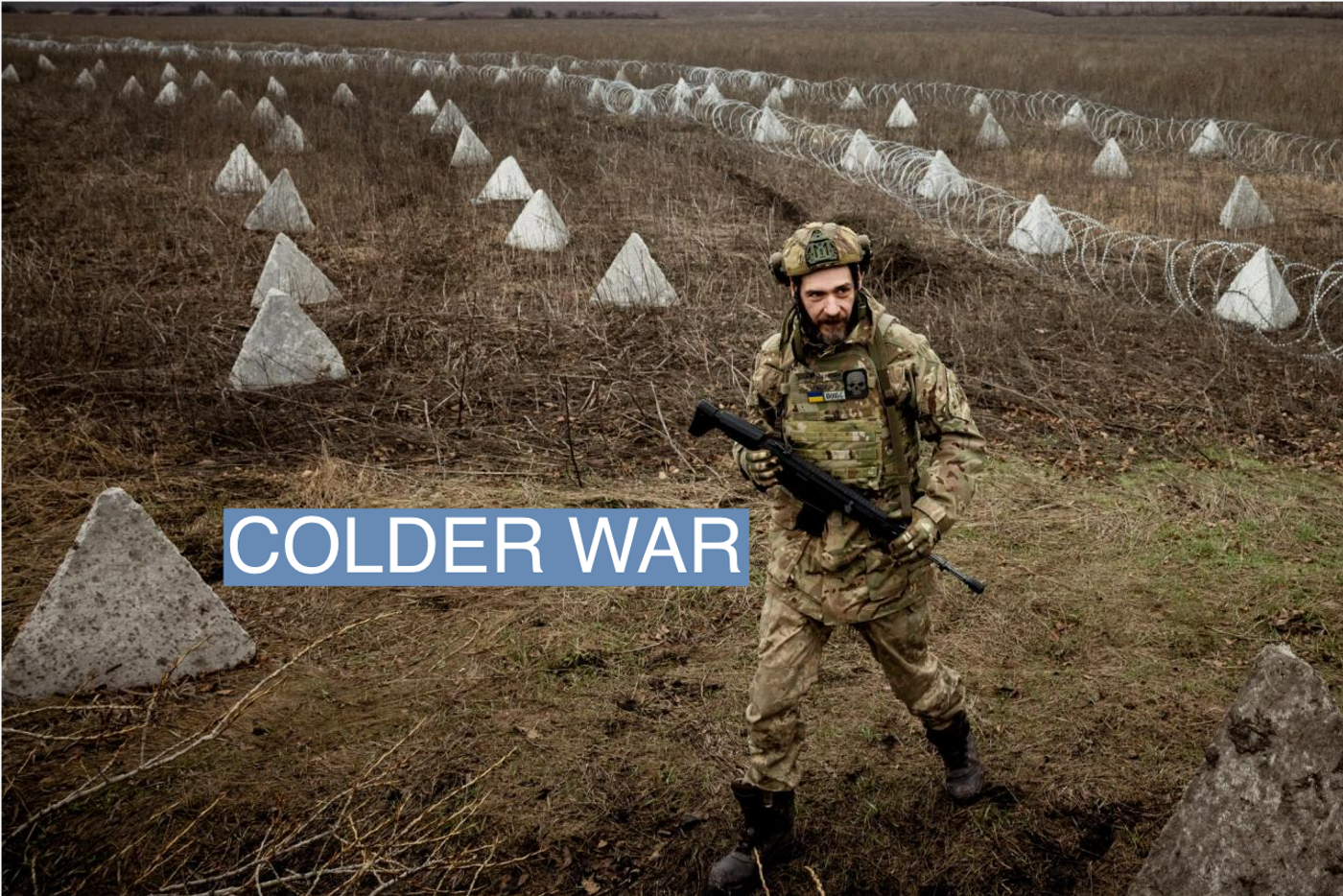
Western nations need to back Ukraine with aerial defenses as the country heads into a new phase of its war with Russia, Ukrainian President Volodymyr Zelenskyy told attendees at the World Economic Forum in Davos Tuesday.
“We must gain air superiority for Ukraine. Just as we gained superiority in the Black Sea, we can do it,” Zelenskyy said.
Russia is preparing for a new offensive as winter sets in, but two years into the war, it comes at a great cost to its own economy, experts note.
Semafor Signals: Global insights on today's biggest stories.
Russian troops are preparing for a new offensive push in Ukraine in the coming weeks, a recent report from the Institute for the Study of War said. Freezing weather in Ukraine has slowed military operations there, but the ISW believes that in the coming months, the climate “will likely create more favorable terrain for mechanized maneuver warfare.” It’s unlikely, however, that Russia will make “operationally significant breakthroughs” in this offensive push, the ISW assessed. Moscow’s winter warfare has evolved since last year, Le Monde reported, with Russian forces “adapting their tactics” to bombard Ukraine first with waves of drones and then with missiles. In December, Ukraine was under the heaviest bombardment since the war began nearly two years ago.
Russian troops trained in the Arctic could have advantage over Ukraine
Ukraine will need to grapple not only with the threats cold weather brings to its troops, but with an already weakened energy infrastructure which suffered under Russia’s last push. Moscow, meanwhile, has dedicated resources to “ensuring that Russian troops can operate in extreme temperatures,” including training its soldiers in the Arctic, researcher Marina Miron wrote for The Conversation. The outcome of Ukraine’s winter operations will “depend on the will of the opposing forces, and on the west’s ability, and willingness, to supply the Ukrainian side with the necessary quantities of ammunition,” Miron added.
The Russian economy is expected to have performed better than the global economy in 2023 — but that is due to President Vladimir Putin’s record-high spending to fund the war, Alexandra Prokopenko from the Carnegie Russia Eurasia Center wrote in Foreign Affairs. Defense spending has outpaced every other sector, Prokopenko noted, and Moscow is making big payments to soldiers and others to mobilize them for the war effort, which has driven consumption and helped shield them from the reality of how the nation’s economy is actually performing. “With the war unlikely to end soon, the financial and economic costs will mount and are likely to bite Russia several years from now,” she added.

Former President Donald Trump won decisively in Monday evening’s Iowa Republican caucuses, with more than 50% of the caucus votes. Ron DeSantis was around 30 points behind, with a narrow lead over Nikki Haley in third place. Business entrepreneur Vivek Ramaswamy dropped out of the race.
U.S. media outlets concluded that Trump’s blowout victory pointed to an inevitable Biden-Trump rematch, while Chinese state media opined that for all its “drama,” the result of the 2024 presidential elections was unlikely to positively impact U.S.-China relations.
Semafor Signals: Global insights on today's biggest stories.
The consensus from US media: Trump is the ‘inevitable’ nominee
“Iowa did nothing to suggest something other than the prewritten script,” The Washington Post’s Dan Balz wrote, noting that everything is pointing to a 2020 rematch this fall. A former Mitt Romney campaign aide told The Financial Times that GOP voters see Trump “as the inevitable nominee, and they’re already falling in line.” Politico wrote that given Trump’s “romp” in Iowa on Monday, he could “all but end the primary next week in New Hampshire.” The New York Times noted that though a tight race for second gives DeSantis and Haley “rationale” to continue, their campaigns are “likely to help Mr. Trump.” Haley’s possible victory in New Hampshire would give her “momentum” but “won’t guarantee anything for her as the primary heads back to states with more conservative, Trump-friendly ground,” according to Politico.
Chinese state-owned tabloid The Global Times said Trump’s victory in Iowa reinforced the U.S.’ “populism tendency.” Experts told the outlet that while the Chinese public has “fun” witnessing the “drama” of the U.S. election, the country should not be under “any illusion that one particular candidate wins may lead to any significant positive adjustments in the US’ China policy.” The Times of Israel highlighted Trump’s claim that he would resolve the Israel-Hamas war “very fast,” noting that his Iowa victory turned his ongoing criminal and civil prosecutions into “a rallying cry that has galvanized his followers.” El País described Trump’s win as a “show of force” and that the former president “cleared any doubts about his leadership among the Republican Party rank and file.”
The Belgian prime minister warned that a Trump White House could mean Europe will be “on its own” more than ever, while Germany’s industry association said that a Trump win could mean that the U.S. will isolate economically and that “Europe must prepare for a world in which we Europeans are more on our own.” Foreign diplomats are increasingly alarmed that America’s deepening partisan divide will adversely affect its ability to mediate global security, with one European diplomat telling Politico, “If all foreign policy issues become domestic political theater, it becomes increasingly challenging for America to effectively play its global role on issues that need long-term commitment and U.S. political capital.”
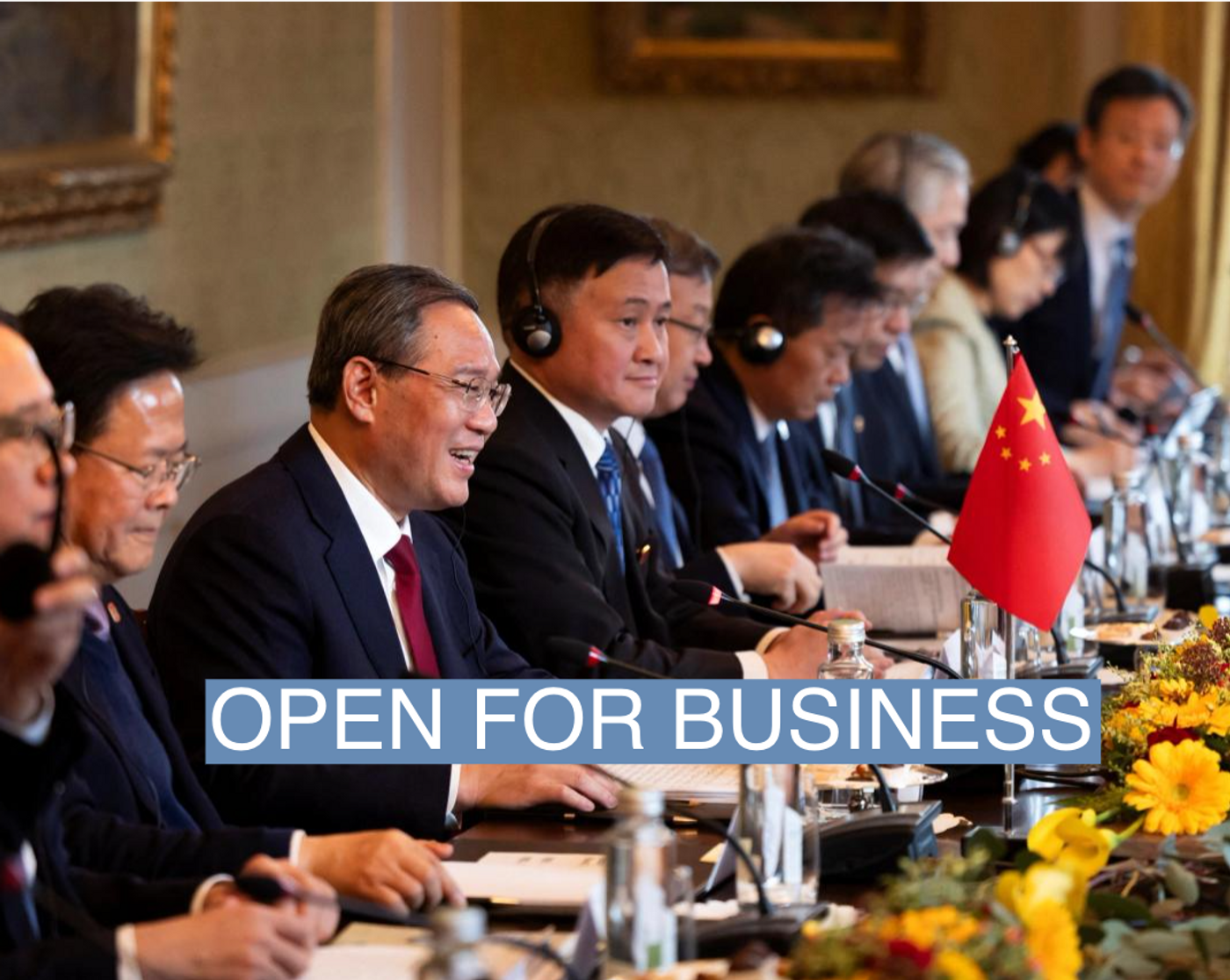
China has taken over Davos in an attempt to convince investors it’s open for business after years of COVID-19 lockdowns.
“Choosing investment in the Chinese market is not a risk, but opportunity,” Chinese Premier Li Qiang said during his keynote address at the annual conference in the Swiss Alps, adding that the country’s economy has grown by more than Beijing’s prediction of 5% in 2023.
Some commentators are calling Li’s sizable Chinese delegation at the World Economic Forum meeting a “pseudo-state visit,” aiming to strike deals with both Swiss and global officials at the ski resort. While China’s economy has shown some signs of recovery, investors remain skeptical of its increasingly authoritarian policies and previous zero-COVID regulations, which were lifted following widespread protests in late 2022.
Semafor Signals: Global insights on today's biggest stories.
More than 10 Chinese state ministries are at Davos, according to Politico. U.S. officials are now scrambling to set up a meeting between Swiss leaders and U.S. Secretary of State Antony Blinken so that “famously neutral Switzerland doesn’t feel jaded by Washington,” Politico reported. Switzerland has in recent years been aligning itself closer to the West. It joined the European Union in sanctioning Russia for its invasion of Ukraine, and a Swiss delegation last year met with outgoing Taiwanese President Tsai Ing-wen. But Switzerland remains deeply economically tied to Beijing, much to the dismay of Western politicians and academics. The two countries recently signed a new trade deal and Beijing also granted Swiss citizens rare visa-free entry to China. “Switzerland has a tendency to follow the industry interests and not the human rights interests,” one NGO director told Nikkei Asia last year.
China’s delegation at Davos is pushing for more trade with Beijing after months of Western companies “de-risking” from China. Engaging in protectionism is “like locking oneself in a dark room” where the West thinks it has “escaped the wind and rain” but has also “blocked out the sunshine and air,” blogger Guan Yao wrote about China’s position at Davos for the Chinese state media outlet Direct News. Premier Li, meanwhile, is tasked with convincing investors that China is “open for business,” despite its sluggish economic recovery dragged-down by Zero-COVID lockdowns. Beijing faces an uphill battle: 40% of respondents in the 2023 American Chamber of Commerce survey said they planned on redirecting investment from China to other markets, according to The Diplomat.
Chinese youth fear that country’s “golden years are over”
Despite Li’s claims of an open and strong Chinese economy, many Chinese millennials and Gen-Z remain gloomy about the country’s economic prospects, NPR reported. “China’s golden years...are over,” one masters student told the broadcaster. Beijing recognizes the youth pessimism, though it has sought to censor online discussion about the economy — particularly frustrations over the country’s property crisis — in an effort to keep social order, Semafor previously reported. Still, economic leaders are warning that China must help its youth if it wants to remain an economic world leader. In its deflated economy, young people are the primary consumers, but previous state policies have been “biased” toward driving growth through stock stabilization and tax cuts, rather than focusing on the “top priority” of increasing jobs for young people, Yao Jingyuan, the former chief economist of the Chinese National Bureau of Statistics, told The Paper.
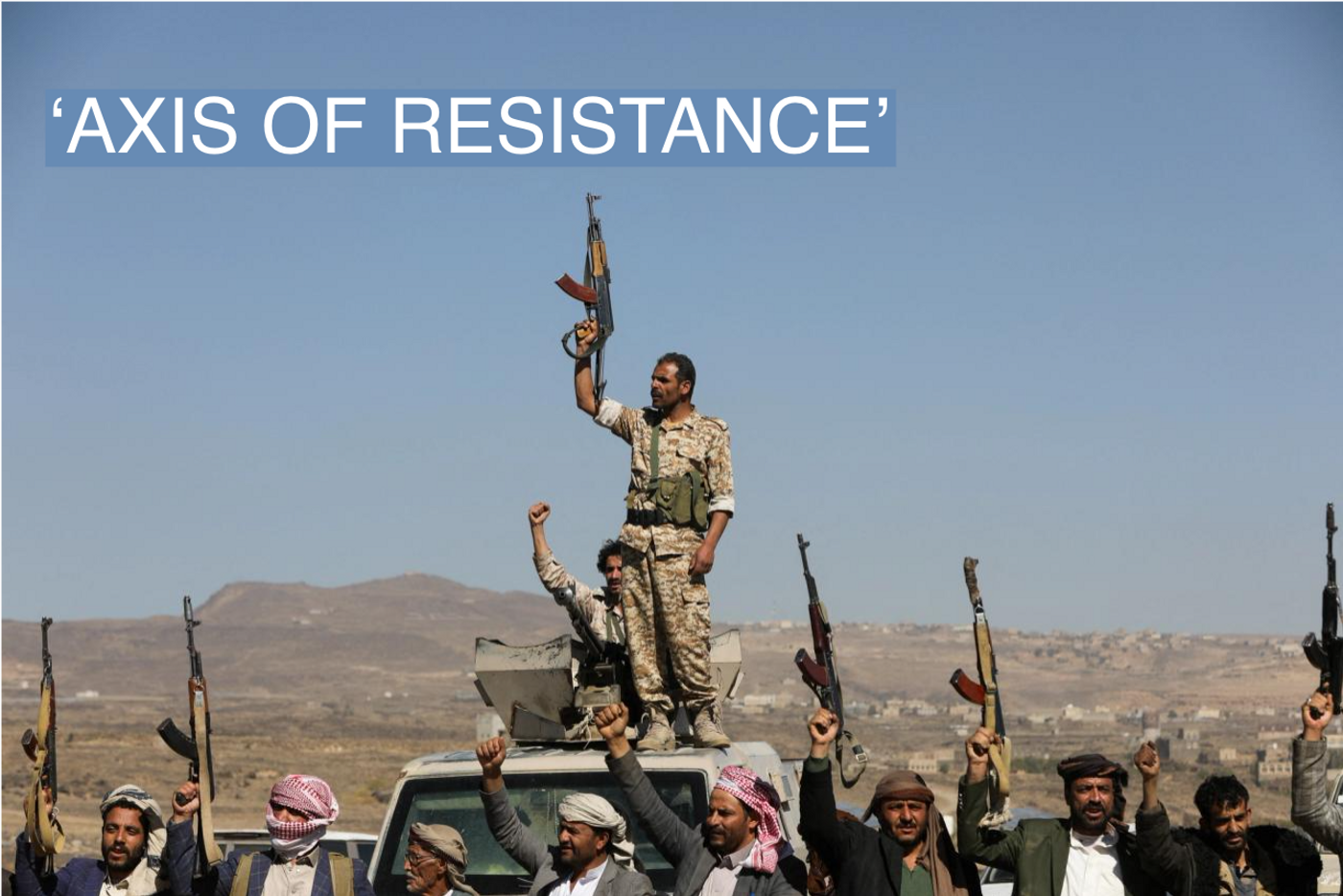
Iran said it carried out strikes in Iraq and Syria, claiming it struck Israeli “espionage centers” in retaliation for attacks by Israel, in a key escalation of the Israel-Hamas war.
Tehran has also deployed forces to Yemen, where U.S.-led strikes targeted the Iran-backed Houthi rebels last week. The Islamic Revolutionary Guard Corps are also playing a direct role in attacks by the Houthis in the Red Sea.
Semafor Signals: Global insights on today's biggest stories.
Houthi attacks part of Iran’s proxy war against US
The Houthis have launched further attacks on shipping vessels in the Red Sea including a strike on a U.S.-owned commercial ship on Monday. Houthi rebels make up part of Iran’s so-called “axis of resistance,” a network of anti-Western militias. As hostilities continue, the U.S. and Iran appear to be locking into an escalatory spiral, the International Crisis Group noted. That comes with major risks. “Tehran and Washington would be wise to look for opportunities to defuse tensions. Right now, that may be politically impossible,” the group wrote in a recent report, adding that “as soon as there is an opening to resume the quiet, indirect diplomacy that led to the pre-Gaza lull, both sides should seize it.”
Mideast war has arrived
By some metrics, a regional war in the Middle East has already arrived, one analyst argued, saying a “low-intensity regional war” has been ongoing for decades. In recent years, Iran has expanded its scope in the region to fill power vacuums with its proxies, Christopher P. Costa, a former U.S. intelligence officer, wrote in The Hill. “Hamas’s terrorist attacks have already opened a Pandora’s box for unifying an axis against Israel,” he noted, so the Biden administration must now “reboot a counterterrorism strategy that takes into account these regional dynamics to confront an Iran-directed axis that’s much more expansive” than it was in years past.
Iran may have miscalculated US retaliation
Tehran might have believed that Washington would have been more restrained in targeting the Houthis, Al-Monitor noted this weekend. Iran has much to lose from a failed standoff with the U.S.: Any miscalculation could “prove costly for a government already grappling with a host of economic maladies and facing a crisis of legitimacy,” the news website’s Tehran correspondent wrote. Iranian hardliners have encouraged their proxies to act, and state-run media have heralded the Houthis as “game changers” in the Israel-Hamas war. “Should the [U.S] coalition strikes continue in the days to come, the Islamic Republic could find itself in a tighter corner,” the correspondent added.
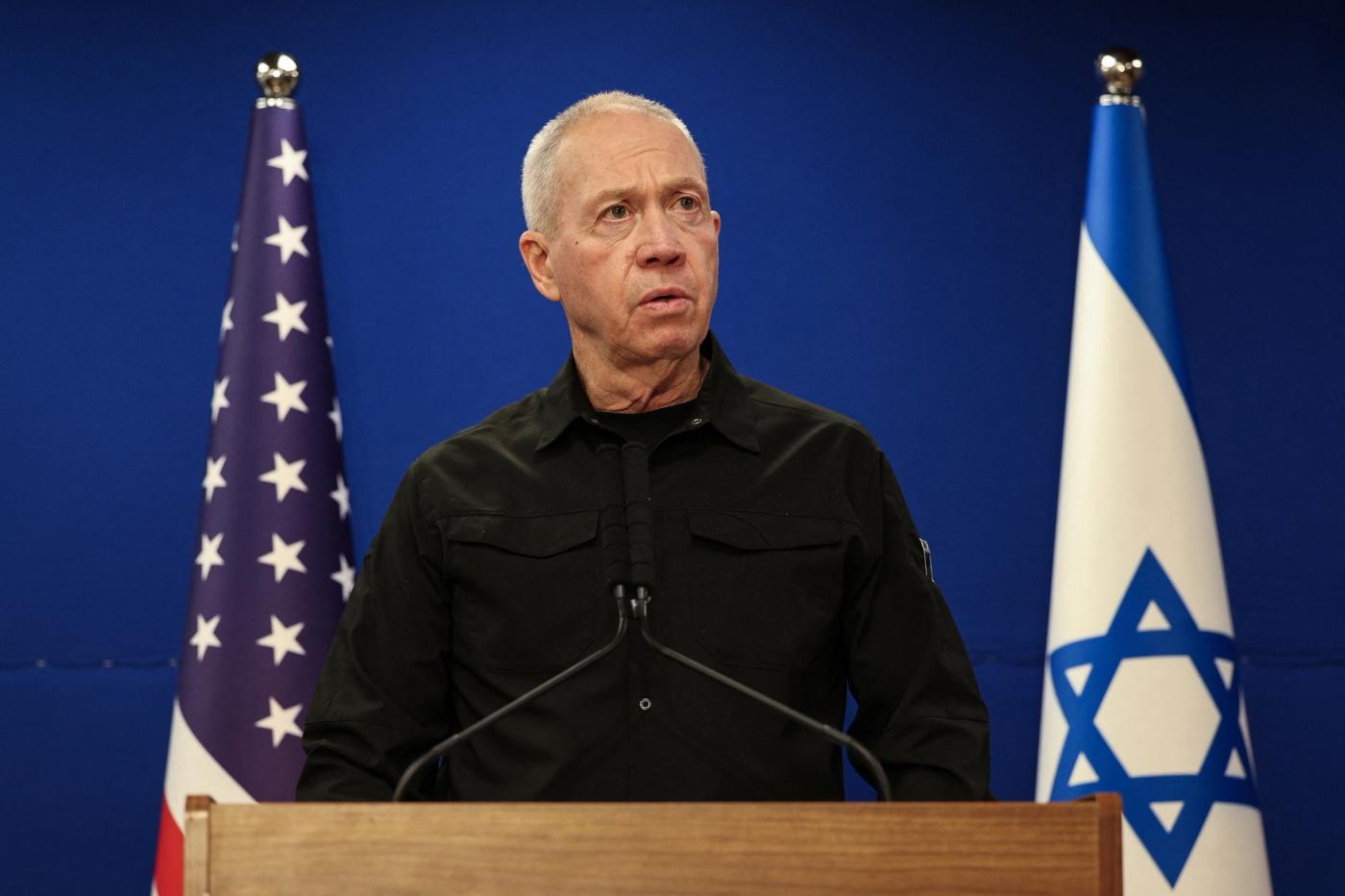
Palestinians will govern the Gaza Strip after the war, Israel’s defense minister Yoav Gallant said Monday, just hours after what Israeli authorities called a “multiple car-ramming” terror attack north of Tel Aviv left one person dead and several others injured.
“Palestinians live in Gaza and therefore Palestinians will govern it in the future,” Gallant said at a press conference. “The future Gaza government must grow out of the Gaza Strip.”
His comments came after the 100th day of the Israel-Hamas war. Gallant has previously said that Israel will not exercise control over Gaza, and that Palestinian players will be responsible for it.
Earlier on Monday, police arrested two suspects from the West Bank for allegedly stealing cars and running over pedestrians in the city of Ra’anana. It’s unclear if Hamas played a role in the attacks.
While attacks in Israel have been rare, the country remains on edge more than three months after the Oct. 7 Hamas attack sparked the war, with Hamas this weekend releasing chilling videos that appeared to threaten the lives of the remaining hostages.
Semafor Signals: Global insights on today's biggest stories.
Israelis still determined to defeat Hamas, but unsure about future security
More than two thirds of Israelis believe the country must continue fighting Hamas and not acquiesce to the U.S. demands of scaling back the bombardment, according to an Israel Democracy Institute (IDI) poll conducted in late December. But respondents also showed a significant drop in confidence regarding the future of Israeli security and democracy. “A generic call for unity is not enough,” wrote IDI president Yohanan Plesner, explaining that Israel risks uncharted polarization after the war when factions can no longer unite behind a single security cause. He opined that the future of Israel is contingent on constitutional reforms that “diffuse” centralized power and “guarantee the rights of all Israelis.”
Not everyone thinks that prioritizing hostage release is in Israel’s security interest
Government officials remain adamant that freeing the hostages is their top priority, but “time is working against the IDF” as it wins tactical battles against Hamas, but fails to secure the release of more hostages 100 days into the war, according to Israeli newspaper Maariv. Experts told the paper that the delays in another hostage deal might be an ego issue of the “political-security elite” who see it as a “weakness” to ask allies like Egypt and Qatar for more help. But Israel Hayom columnist Nadav Sharga argued that prioritizing hostage retrieval “at any cost” risks Israel’s security because any such deal will inevitably mean the release of terrorists detained by Israel. In his view, the current framing of the hostage situation means that politicians see the lives of the hostages as more valuable than “our children and grandchildren.”
Netanyahu seen as ‘worst Jewish leader’ for prioritizing his own political future
“Netanyahu will go down in history as the worst Jewish leader ever” for failing to separate his own interests from that of his country’s, one former opposition politician told The New Yorker editor David Remnick. His profile of Netanyahu details how the Israeli leader prioritized his political survival throughout his last term, pushing forward far-right legislation to appease his coalition, while ignoring several security warnings that Hamas was eyeing Israel’s vulnerability amid its political instability and civil factions. Both leftist and conservative Israeli politicians are furious at Netanyahu, with former prime minister Naftali Bennett saying, “Israel has been tearing itself apart and its immune system became weak. Our enemy saw that and attacked.”